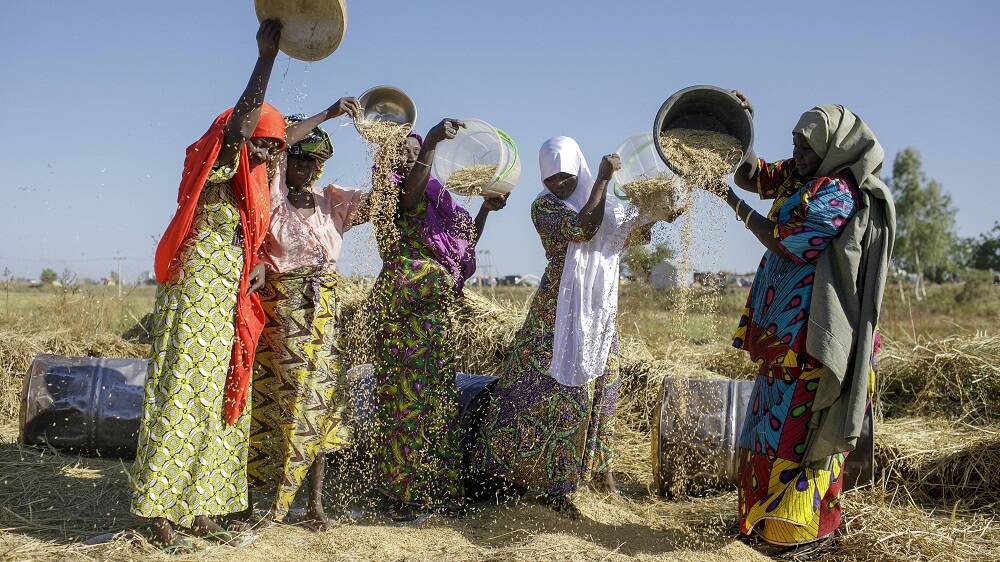Food Sovereignty

Africa’s future hinges on its rural areas and agriculture. The majority of the population remains rural, with the agricultural sector employing 65 percent of the continent’s workforce and almost 40 percent of “working youth”. At the same time, trade and food processing are central (albeit often informal) sources of income concentrated in Africa’s expanding megacities.
Solving the enormous challenge of overcoming widespread hunger in a time of climate shocks will not be possible without a sustained push for food sovereignty. In this context, we understand “sovereignty” as, on the one hand, a form of political participation: many actors in agriculture and the food system more generally — peasant farmers and workers, informal merchants, etc. — come from the subaltern, politically marginalized classes. It must be possible for them to collectively articulate and defend their rights and interests.
Yet “sovereignty” also implies control over resources including seeds, water, and land, as well as access to markets, knowledge, and capital. This effectively calls for a new paradigm in politics: instead of relying on the rigorous implementation of “free trade”, the adoption of technologies developed by transnational agro-chemical corporations and the integration of a small number of agricultural producers into the regulated supply chains of supermarket giants and food corporations, states will have to embrace broader strategies. These include promoting partnerships between researchers and farmers, developing agro-ecological approaches, developing infrastructure to strengthen informal domestic markets, or providing new technologies as a commons.
The food sovereignty programme is based in the Rosa Luxemburg Foundation’s office in Johannesburg, South Africa. Our work focuses on South Africa, and Zambia and promotes exchange between social movements in cooperation with other foundation offices, such as those in Brussels, India, and East Africa. Our activities concentrate on:
- Seed Policy
In many countries, reforms of seed protection legislation are currently prioritizing corporate interests over farmers’ rights. We therefore bring together farmers’ organizations and social movements that oppose these reforms — effectively a form of accumulation by dispossession — and help them to formulate their own political alternatives. - Labour Rights in Agriculture
Roughly 500 million people around the world are employed as wage workers in agriculture. Union organizing in rural areas must develop individual approaches and strategies.
We support wage labourers in establishing networks within their respective sectors as well as with other social movements. We analyse the power dynamics and price pressures along agricultural supply chains. - Dialogue on Agricultural and Food Policy
Together with critical researchers, social movements, trade union representatives, and left-wing parties, we tackle pertinent issues such as how the Left responds to the monopolization of market power, financialization, or digitalization in food systems, and in times in which right-wing populism is on the rise globally, we explore options for fresh emancipatory policy approaches in rural areas.
Contact:
| Role | Details |
|---|---|
| Food Sovereignty Programme Director | Jan Urhahn Email: jan.urhahn@rosalux.org Phone: +27 10 4460538 |